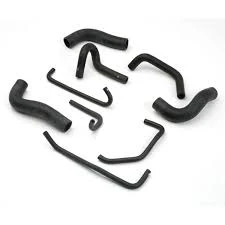Understanding the Importance of Petrol Fuel Lines in Automotive Maintenance
Oct . 22, 2024 09:29 Back to list
Understanding the Importance of Petrol Fuel Lines in Automotive Maintenance
The Importance of Petrol Fuel Lines in Automotive Systems
In the realm of automotive engineering, every component plays a significant role in ensuring the vehicle operates smoothly and efficiently. Among these components, the petrol fuel line stands out as an essential element in fuel delivery systems. This article will explore the function, construction, maintenance, and importance of petrol fuel lines in vehicles, highlighting the necessity of proper management to prevent issues that could lead to inefficiencies or safety hazards.
The petrol fuel line is a conduit that transports fuel from the fuel tank to the engine. It is designed to withstand high pressure and varying temperatures, ensuring reliable delivery of petrol to the fuel injectors or carburetor, depending on the vehicle's design. The accuracy of this system is pivotal; if the fuel line fails or becomes obstructed, the engine may not receive the proper amount of fuel, leading to performance issues or even engine failure.
Fuel lines are typically constructed from materials that can withstand the corrosive effects of petrol, as well as the high pressures experienced during operation. Common materials used include rubber, reinforced rubber, nylon, and steel. The choice of material often depends on factors such as the specific vehicle design, the type of fuel used, and the environmental conditions in which the vehicle operates. For instance, high-performance vehicles often utilize stainless steel fuel lines for enhanced durability and performance under extreme conditions.
petrol fuel line

The importance of maintaining petrol fuel lines cannot be overstated. Over time, fuel lines can develop cracks, leaks, or blockages. Rubber lines, in particular, are susceptible to degradation from the fuel chemicals. Regular maintenance checks are vital to ensure the integrity of the fuel lines. This includes inspecting for signs of wear, filling and draining filters, and replacing old or damaged lines. A small leak in a fuel line can not only diminish engine performance but also pose significant safety risks, such as fire hazards.
An often-overlooked aspect of petrol fuel lines is their impact on engine performance and efficiency. A blocked or damaged fuel line can restrict fuel flow, leading to poor acceleration, lower horsepower, and increased fuel consumption. In some cases, a failing fuel line can cause the engine to stall unexpectedly, an issue that can be dangerous on busy roads. Therefore, ensuring that fuel lines are in optimal condition is crucial for maintaining the overall health of the vehicle.
Moreover, advancements in technology have led to innovations in fuel line construction and management. Modern vehicles are being equipped with advanced monitoring systems that can detect issues within the fuel delivery system before they become critical. Such technology can alert drivers to potential problems, allowing for timely inspections and repairs. Additionally, with the rise of electric and hybrid vehicles, understanding the role of petrol fuel lines is also vital as these systems adapt to the changing automotive landscape.
In conclusion, petrol fuel lines are a fundamental component of automotive systems that play a critical role in engine performance and safety. They ensure the efficient delivery of fuel, impacting both the effectiveness of the vehicle and its environmental footprint. Regular maintenance and inspection are essential to prevent issues related to degradation or damage. As technology continues to evolve in the automotive industry, so too will the materials and methods used in fuel line management, leading to safer, more efficient vehicles. For drivers and automotive enthusiasts alike, a well-maintained petrol fuel line is integral to achieving optimal performance and ensuring the longevity of the vehicle.
